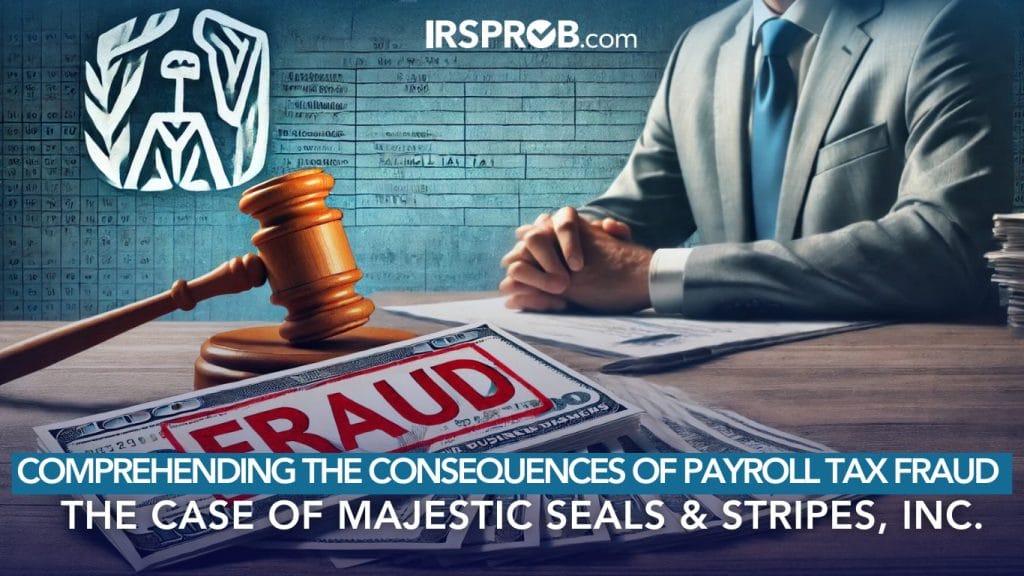
In a recent case that underscores the serious implications of payroll tax fraud, Linda Davis, the owner of Majestic Seals & Stripes, Inc., was sentenced to four years in federal prison for willfully failing to pay employment taxes withheld from her employees’ paychecks. This case serves as a critical reminder for business owners about the importance of compliance with tax laws.
The Case Overview
On October 18, 2024, U.S. District Judge Thomas P. Barber sentenced Davis after she pleaded guilty to diverting funds that should have been paid to the IRS. Between June 2016 and December 2021, Davis failed to remit $557,249.62 in payroll taxes. Instead of fulfilling her obligation to pay these taxes, she misappropriated the funds for personal use.
In addition to her failure to pay employment taxes, Davis submitted a false IRS Form while applying for a Paycheck Protection Program (PPP) loan in February 2021. This fraudulent application led to an approval and funding of $161,800 for her company.
Ron Loecker, Special Agent in Charge of the IRS-CI Tampa Field Office, emphasized the betrayal felt by employees when their employer exploits them for personal gain. His statement highlights the ethical responsibilities that come with being a business owner.
The Impact of Payroll Tax Fraud
The consequences of payroll tax fraud extend beyond legal penalties. Here are some key points for business owners to consider:
- Legal Ramifications: As seen in Davis’s case, failing to pay payroll taxes can lead to significant prison time and hefty restitution payments. In this instance, Davis was ordered to pay $719,049.62 in restitution.
- Reputation Damage: Being involved in a fraud case can severely tarnish a business’s reputation. Customers and partners may lose trust in a company that has been found guilty of unethical practices.
- Financial Consequences: Beyond restitution, businesses may face fines and increased scrutiny from regulatory bodies. This can lead to long-term financial instability.
- Employee Trust: Employees expect their employers to handle payroll and taxes responsibly. Breaching this trust can lead to high turnover rates and difficulty attracting talent in the future.
How Business Owners Can Protect Themselves
To avoid falling into similar traps as Linda Davis, business owners should take proactive steps:
- Stay Informed: Understanding your tax obligations is crucial. Regularly review IRS guidelines and updates related to payroll taxes.
- Consult Professionals: Engaging with tax professionals or accountants can help ensure compliance with tax laws and regulations.
- Implement Internal Controls: Establishing checks and balances within your financial operations can prevent misappropriation of funds.
- Conduct Regular Audits: Regular internal audits can help identify discrepancies before they escalate into serious issues.
Final Thoughts
The case against Linda Davis serves as a sobering reminder of the serious consequences associated with payroll tax fraud. By prioritizing ethical practices and compliance with tax laws, business owners can protect themselves from legal repercussions and maintain their reputation in the industry.
As we move forward, let’s commit to fostering a culture of integrity within our businesses—after all, doing right by your employees is not just a legal obligation; it’s a moral one as well.








